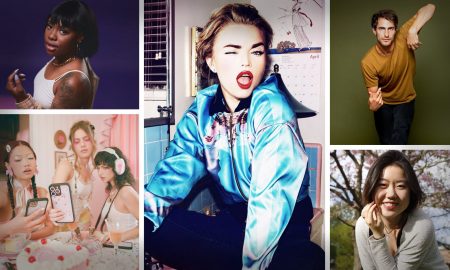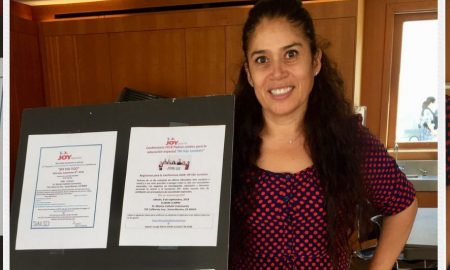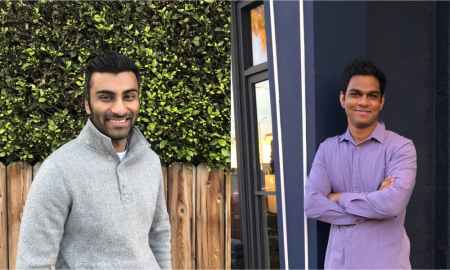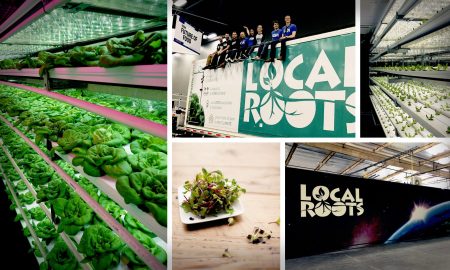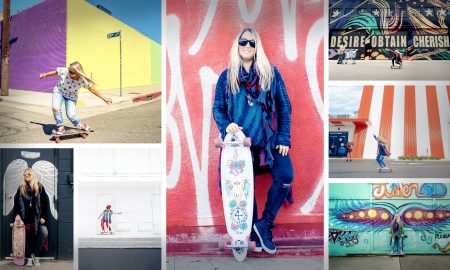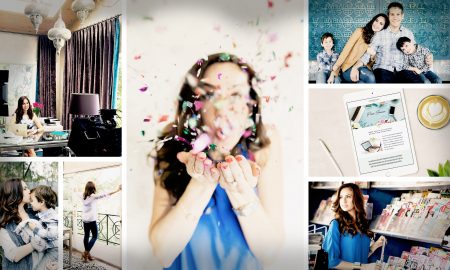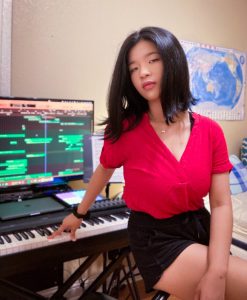
Today we’d like to introduce you to Helen Feng.
Hi Helen, thanks for joining us today. We’d love for you to start by introducing yourself.
I am a passionate composer-performer, producer, and TEDx speaker. I was born in New Zealand and raised in China, and am currently studying music composition, psychology, and entrepreneurship/innovation at Northwestern University.
Though I started taking piano and voice lessons as a kid, I didn’t realize that I was head over heels in love with music until starting to explore J. S. Bach’s music in middle school! Soon after a friend introduced me to German football, I became enamored with German culture and tried to immerse myself in all things Deutsch––conducting research into German history, learning German, and listening to German music, etc. During that process, I encountered the Bachhaus Leipzig museum app, where I heard John Eliot Gardiner’s interpretation of J. S. Bach’s “Alles mit Gott” aria in one of the audio guides. Moved by that music like never before, I spent the summer exploring Bach cantatas, listening to Gardiner’s discography, and starting to compose spontaneously. Singing and dancing through it all, I knew then that music had cast an irrevocable spell on me.
My two middle school music teachers, upon hearing about my journey through Bach’s music, gave me listening recommendations spanning different modes of musical expression and encouraged me to explore my budding interest in composition. Under their mentorship, I started to notice the music all around me and began reflecting on music’s diverse functions in human life and beyond.
When I came to the U.S. for high school, my mind continued to be blown as I found a wonderful community of friends and mentors and got to know people passionate about different disciplines and hailing from diverse backgrounds. I started to embrace my multidisciplinary passions and connective thinking––such as composing text settings of multilingual literature, writing music for theater productions, and writing papers on music’s historical and sociocultural implications. I also started grappling with my multicultural background, became a cultural competency advocate and forum facilitator at school, and delivered a TEDx talk exploring the cultural appropriation debate from a musical perspective.
In high school, I attended the Walden School’s Young Musician’s Program for two summers and was so lucky to get to know a wonderful community of humans there! Walden introduced me to contemporary concert music and electroacoustic music and enabled me to deeply experience the beauty of open-minded listening. There, I also started embracing my composer-performer side by extensively performing my own pieces and those of my friends.
As a freshman at Northwestern this past year, I took classes in cultural studies, music psychology, music technology, and film sound––learning more about music’s multidisciplinary applications. I am so excited to continue exploring these topics and putting them into practice in my work.
Engaging with stories often stirs in me such organic connections as to bring ecstatic tears to my eyes. I firmly believe in storytelling’s capacity to forge genuine human connections on the grounds of openness, respect, and compassion. And I want to do my best to make art that is true to myself, challenges boundaries, thoughtfully advances social justice and hopefully adds a sprinkle of empathy, joy and light to our world.
We all face challenges, but looking back would you describe it as a relatively smooth road?
One thing I’ve constantly grappled with is my multicultural identity. Like many “third-culture kids”, I’ve often been called “not [Chinese/New-Zealander/etc.] enough”, and experienced confusion and a sense of displacement regarding identity and belonging. In high school, my budding identity as a boundary-nonconforming artist inspired me to critically challenge the ubiquitous single-story mindset: if cultures are fluid processes that swim across boundaries, and if I’m already attempting to defy rigid single-stories in my music-making, can’t I similarly defy the ubiquitous expectation to be “one thing”––a single-story rather than a mosaic of multi-stories––in my cultural identity?
Composer-pianist Vijay Iyer once said in an interview: “Instead of thinking about things in terms of genres, let’s think about them in terms of communities”––dynamic, ever-changing communities-in-process! Studying developmental psychology in college, I learned about Bronfenbrenner’s ecological model, which explains that there are many layers of context that impact a person’s lifelong development. These findings teach me that cultures are dynamic processes and that we each embody a “personal cultural process” completely unique to themselves. We are all culturally unique and diverse, and that is beautiful.
Meanwhile, a growing sociohistorical awareness compelled me to connect identity pluralism with issues of power dynamics that are very real and pervasive in our world. When I was first introduced to the term “cultural appropriation”, I found it really difficult to make sense of. I started re-examining my relationship with storytelling: How do I engage with stories beyond my personal realm thoughtfully and compassionately to bring out the best of storytelling’s humanizing qualities?
Interviewing classmates, fellow artists, and teachers, I sought to deepen my understanding of the cultural appropriation controversy and its underlying nuances. These interviews and research culminated in my TEDx talk and a few community forums. Ongoingly wrestling with these topics, I realize now that social consciousness doesn’t have to stifle creativity, nor are difficult conversations counterproductive when done respectfully. Rather, it can compel me to adopt an open mind, a respectful intent and an empathy-driven consideration of what story is being told and received and under what context—topics at the heart of constructive creative exchange.
Thanks – so what else should our readers know about your work and what you’re currently focused on?
I am a composer, pianist, vocalist, and producer who finds creative anchors in multidisciplinary influences (especially psychology, sociocultural activism, and literature). My music is mostly written for concert acoustic instrumentation thus far but is increasingly branching out into dance-pop, indie-pop, filmic, and other soundworlds and always evolving stylistically and conceptually. As a pianist and vocalist, I love playing chamber music and am passionate about performing more new music repertoire moving forward.
The composer-pianist-vocalist combo is a major facet of my creative identity and practice. Adding music technology/production on top of it lately has been incredibly rewarding!
This summer, I am self-producing an album called “Mirrors”, which includes a set of very stylistically diverse songs. This album draws influences from the music of Björk, Kate Bush, SOPHIE, Grimes, Natalia Lafourcade, and more. Conceptually, it is inspired by Lacan’s mirror stage philosophy, exploring how the mirror (as a surface that reflects images) can be a powerful force in spreading societal ideals and rigid expectations––and how, with awareness and agency, we can reclaim its narrative of “discovery” that’s often buried by the “rigidity” side.
As a music and psychology student in college, I am conducting research into dream psychology and writing a set of dream-related works in hopes of creating a musical installation on dreaming by the end of my undergrad career. Dream-research is very, very new as a scientific field, but not so new as an artistic and anthropological topic! And so connecting the science of dreaming with the cultural dimensions of dreaming has been immensely fascinating and rewarding.
Moving forward, I am interested in working at the intersection of film scoring, recording arts, and concert music. In my work, I hope to thoughtfully connect the dots between seemingly disparate fields and use those learnings to generate creative solutions to pressing social matters.
Where do you see things going in the next 5-10 years?
I think there is an increased degree of sociocultural awareness (and willingness to have difficult conversations about those topics) amongst artists today, in our works and beyond. There also seems to be some deepened conversations of cultural competency and all sorts of -isms, and discussions of how we as storytellers can critically and responsibly interact with historical works––many of which embody stereotypical and exclusionary narratives––that are still very much alive and have very real impacts on real people.
Artistically, initiatives to amplify marginalized voices are much needed but underway. I am optimistic that as we navigate times of turbulence and many deeply-rooted issues, these trends can carry us far, as they can act as conduits for awareness, empathy, and respect, and shatter echo chambers of fear and exclusion with narratives of hope and humanity––one story at a time.
Contact Info:
- Email: [email protected]
- Website: helenfengmusic.com
- Instagram: https://www.instagram.com/he1enfeng/
- Facebook: https://www.facebook.com/helenfengmusic/
- Twitter: https://twitter.com/helenfengmusic
- Youtube: https://www.youtube.com/channel/UCpcgQWcHMkvg-zhlzariSBw
- Other: https://linktr.ee/helenfeng



















